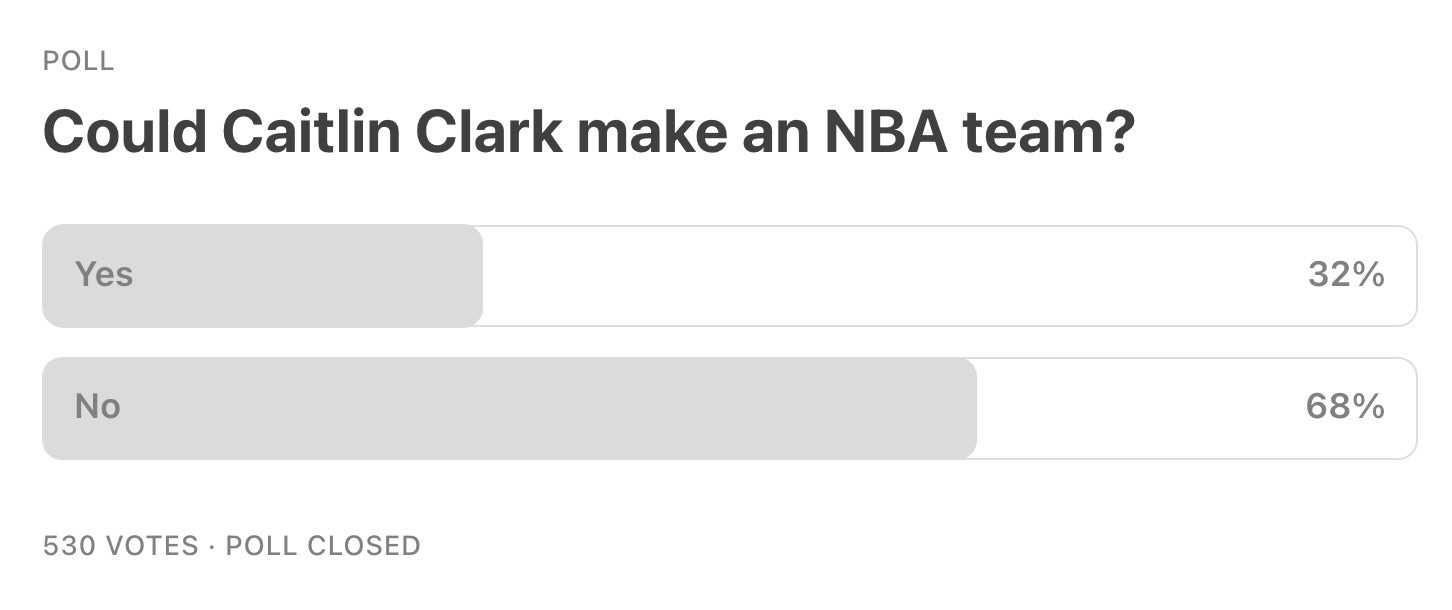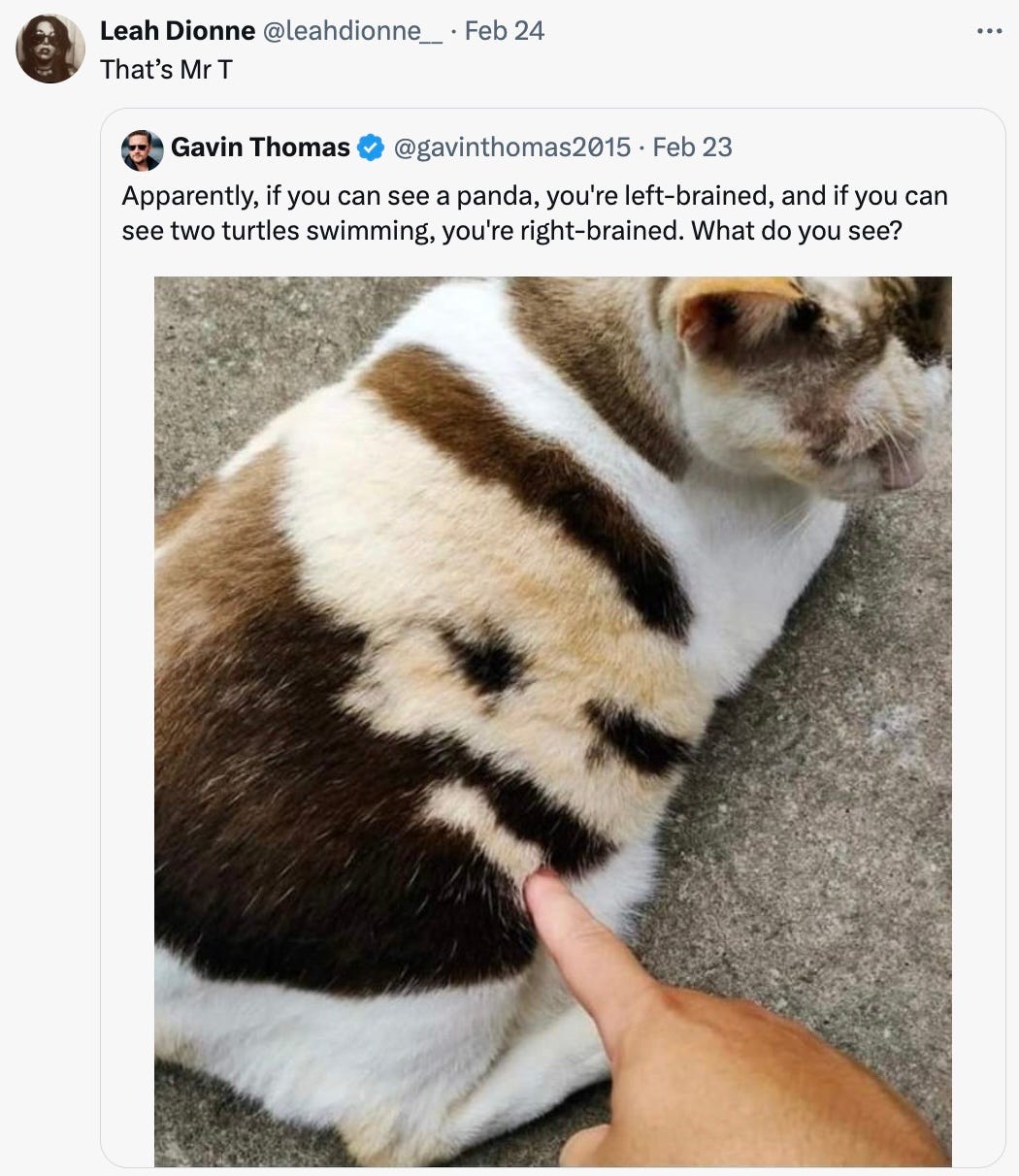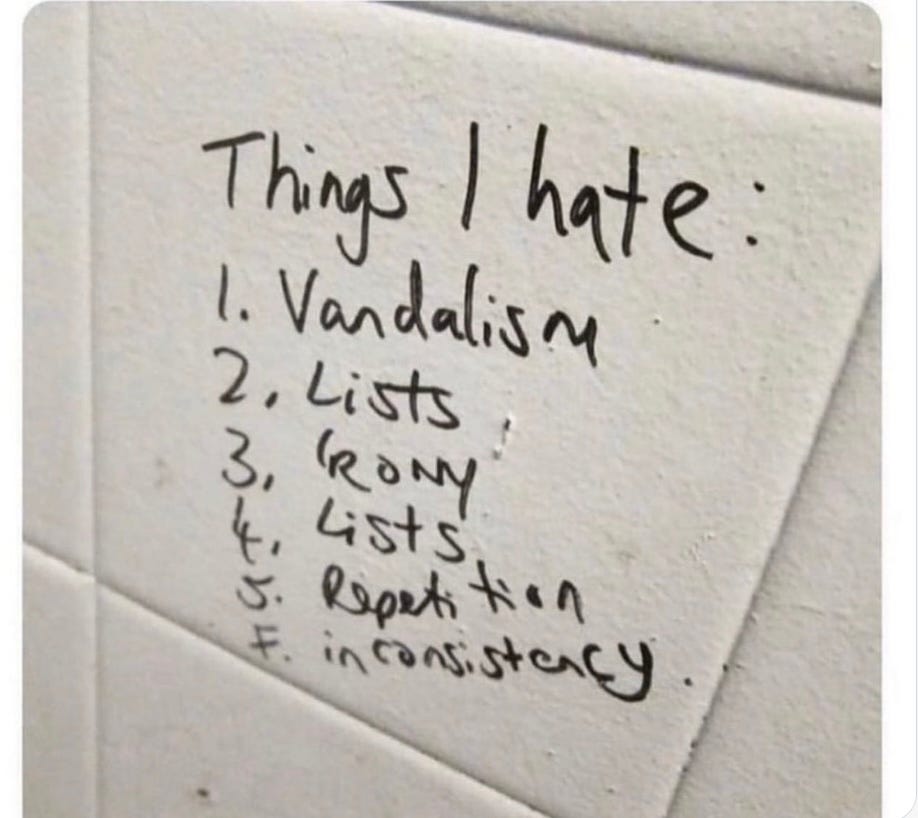IVF ruling stands to expose the extremists and hypocrites in the 'pro-life' movement
& a deeper look at why a judge may have ruled against the 'Bring Chicago Home' referendum
To read this issue in your browser, click on the headline above.
Eric Zorn is a former opinion columnist for the Chicago Tribune. Find a longer bio and contact information here. This issue exceeds in size the maximum length for a standard email. To read the entire issue in your browser, click on the headline link above. Paid subscribers receive each Picayune Plus in their email inbox each Tuesday, are part of our civil and productive commenting community and enjoy the sublime satisfaction of supporting this enterprise.
Click here to take the first ever Picayune Sentinel reader survey.
Today at 11:00 a.m. I will talk with WGN-AM 720 host John Williams about what’s making news and likely to be grist for the PS mill. The WGN listen-live link is here.
My serious question for opponents of abortion rights who are now racing to champion in-vitro fertilization
I posted a version of this to Facebook over the weekend as more and more Republicans rushed to distance themselves from the Alabama Supreme Court ruling that further imperils abortion rights by declaring that embryos fertilized for purposes of in-vitro fertilization have the legal status and presumably protections as children.
For decades, those opposed to abortion rights have declared that human life worthy of full legal protections begins at conception. And though I don't agree with that position as a matter of law, I can certainly understand it and acknowledge its consistency.
The fact that it leads logically to demanding that an 11-year-old rape victim who becomes pregnant carry her rapist's baby seems ghastly and cruel to me, but, again, the view is consistent and in some ways I respect it more than the position of those whose view amounts to "life begins at conception except when it doesn't," which is incoherent and gives rise to my suspicion that opposition to abortion is rooted in opposition to sex for pleasure, and not actually a passionated concern for embryos.
I certainly know the practical reason so many Republicans — such as Donald Trump — are now distancing themselves from the Alabama Supreme Court decision. IVF is very popular. Quoting the Washington Post, "Among individuals who oppose abortion, only 11.7% of white respondents and roughly 17% to 18% of Black and Latino respondents express moral opposition to IVF."
If you add in the sentiments of the majority of the public that generally supports abortion rights, then it becomes obvious that banning IVF because of the inevitability of destruction of frozen human embryos is a wildly extreme, unpopular position.
As a political matter, I can certainly understand why Republicans are proclaiming their support for IVF. But as a moral matter? Please. Give me a serious answer.
And don't turn this into a "what about?" thread asking about the lack of limits among those who support abortion rights. Save it for your own threads. I'll just note that the position of the vast majority of those of us who support abortion rights believe that the moral status of the fetus grows during gestation and that the basic limits and guidelines under Roe were acceptable. One simply did not see women with healthy fetuses obtaining abortions during their final trimesters.
Most of the responses came from people who agreed with my position. Here are two contrary takes, both from real-life friends:
Lisa Jacobs Carson: — My own answer is that the human embryo is a human being. As a Catholic (and maybe even I weren't Catholic), I oppose the laboratory creation of human life. But I recognize that many others do not share my absolutism, and I am very happy to see, for example, compromises resulting in some limits on abortion short of absolute bans. I am most interested in helping people bring their babies to term with the support they need, and that's where I put my energies--the support necessary to bring these babies safely into the world, and with time, hopefully fewer and fewer abortions. I think that is principled and consistent. I believe politicians and others scramble to take positions that will serve them so they are not always consistent.
Pete Prokopowicz — If I were a pro-life absolutist, I would support regulations of one embryo at a time. Unfertilized eggs could be extracted several at a time, the way they are now, but not fertilized before freezing them. Then, only one (or two, or whatever the medical protocol recommends for the patient) could be thawed, fertilized, and implanted in one cycle.
This would be identical for the patient to the current practice in terms of managing the cycles,, etc. it would give every embryo the same chance to develop The drawback would probably be a lower pregnancy yield per harvesting cycle, but I don’t know that for sure. In any case, this is already being done, without embryo freezing or destruction.
I'm very familiar with IVF. The no-kill idea is already presented to patients, when they sign on for freezing and possibly destroying embryos. That's up to the patients. People already take this option. If pro-life absolutists have their way, this would be regulated and their would be no choice. The difference is not huge, so we are talking costs and pragmatics, not conflicting principles and hypocrisy.
The idea that pro-life absolutism and IVF are incompatible sounds like a FUD (Fear, Uncertainty and Doubt) tactic. They are already compatible, and in the worst, most restrictive case, it would change but in no way end the IVF process for anybody. It reads as if you think one cannot be pro IVF and pro life based on embryo destruction, but that is wrong.
Excerpts from the argument against the ‘Bring Chicago Home’ referendum with which the judge evidently agreed
At this writing there seems to be come confusion about Friday’s ruling by Cook County Circuit Judge Kathleen Burke that the “Bring Chicago Home” referendum is invalid. Burke did not elaborate on her reasons, but it’s fair to assume that she simply agreed in large measure with the objection raised by those who contended the referendum question was not legal under state law.
Their brief pointed out that, in 2021 and 2023, efforts failed in the City Council to put forth a simple referendum question seeking to raise the real estate transfer tax on properties valued over $1 million. Each time, the proposal before the alders said nothing about including a decrease in the transfer tax on properties of lesser value.
So last fall, the sponsors added a sweetener:
(This time, they) proposed the submission of a referendum question seeking to 1. Lower the real estate transfer tax rate to $3.00 for every $500 in the value of the transferred property below $1 million (a 20% reduction).
2. Increase the real estate transfer tax rate to $10.00 for every $500 in the value of the transferred property above $1 million but below $1.5 million (a 166.67% increase).
Increase the real estate transfer tax rate to $15 for every $500 in the value of the transferred property above $1.5million (a 300% increase).
This passed, though there is no need, under state law, for a home-rule municipality such as Chicago to seek voter approval to lower property transfer tax rates, only to raise them. Part 1, the decrease, was a legally unnecessary add-on and, opponents said, was a clear example of “the disfavored practice known as ‘logrolling’ or ‘bundling unpopular legislation with more palatable bills, so that the well-received bills would carry the unpopular ones to passage.’” The quote is from the 2011 Illinois Supreme Court ruling in Wirtz v. Quinn.
The opponents’ brief says:
Just four months after two separate resolutions proposing to only increase the transfer tax failed to pass, the proposed increase was combined with the proposed decrease in order to ensure sufficient support to pass the City Council. … (This) is precisely why Section 8-3-19 of the Illinois Municipal Code prohibits enactment of real estate transfer taxes that are “inconsistent” with that section. …
(The ballot referendum) plainly calls for three separate questions … (and) violates voters’ rights to vote on each of the three questions separately. For example, and most obviously, many voters likely support the first question (lowering taxes), but oppose the second and third questions (raising taxes). However, they cannot express their support for the first proposition without also expressing support for the second and third propositions that they oppose.
Because (the referendum on the ballot poses) a compound question combining three separate questions, it violates plaintiffs’ (and all voters) right to vote on the three propositions separately in violation of Article III, Section 3 of the Illinois Constitution (which states that all elections must be “free and equal”), and cannot be placed on the ballot for voter consideration at the March 19, 2024 Primary Election.
There are other objections (“The proposed referendum is vague , ambiguous and not self-executing,” for instance) but the above is likely the one Judge Burke felt was strongest.
It may be that an appellate court will rule that, taken as a whole, the referendum poses a single question about changing how transfer taxes are imposed, and therefore passes legal muster. But it may also be that the proponents of Bring Chicago Home will have to go back to the drawing board and rewrite the ballot question without the gratuitous sweetener attached.
I approve these messages
Skilling was one of the most gracious, responsive sources I encountered in years of reporting in Chicago. I didn’t write about the weather all that often, but when I did and needed guidance, he was always helpful. The use of the (here implied) F-word as a positive intensifier seems increasingly common and I, for one, enjoy it.
Meanwhile, here is a campaign flyer from Democratic state Rep. Gregg Fuckin’ Johnson, who represents the Quad Cities area:
Notes and comments from readers — lightly edited — along with my responses
In last week’s ZMail, Marc Martinez wrote “AI is a sophisticated plagiarism engine with zero knowledge or understanding of what it is scraping,” To this I replied:
What AI does isn't "plagiarism," it's synthesism — the program absorbs numerous images of flowers, say, and then generates an image that contains elements of whatever it has perceived as "floral." It's a lot like what human artists do, really. The fact that it's done with 1s and 0s in just moments instead of with neurons over a lifetime of experiences sets on fire the hair of those who think there is some mystical something about being human that means only humans can "create." I don't know the answers to what amounts to such philosophical questions as, “What is consciousness? “What is creativity?” and “What is intelligence?” But it begs the question to say these qualities are uniquely human.
This prompted the following replies:
Marc Martinez — If there is nothing unique about being a human consciousness, then AI machines are by definition able to achieve full equality and superiority.
So when does a machine consciousness have rights? If the answer is “never,” then what is the rationale for granting or denying rights to an intelligent being?
What rights are you willing to grant to AI? What societal obligations are you willing to accept with respect to AI? What authority are you willing to cede to AI? When is the output of an AI no longer the responsibility of its creators? Does AI have a right to free speech? Does AI have ownership rights to its creations? Are AI programs the property of human owners regardless of their level of consciousness? When do AI machines/devices/programs have a right to freedom and self-preservation?
These questions are not far off. A foundational tenet that says there is nothing unique in human qualities is a risky starting point for humans.
Jake H. — Suppose you're alone in a room, a person slips a question under the door written in Chinese characters, you scan the question in a computer in your room programmed to produce a plausible response, and you slip that response, also in Chinese characters, out to the Chinese speaker outside.
To that person, you just conversed in Chinese and yet you speak not a word of Chinese. You obviously did not just converse in Chinese, notwithstanding the simulation of having done so. And yet you did just what the computer is doing. You matched some input with plausible output.
Does it make sense to say that you did any thinking in that scenario, beyond the confines of your minimal task? No. You comprehended neither the question nor the answer. The AI likewise doesn't know what it's doing.
Are we not, at bottom, doing the same thing, just matching input with plausible output? That's an interesting question to be sure, but if your answer is yes, then it commits you to suggesting that the simulation of Chinese conversation in the Chinese room thought experiment — first proposed by philosopher John Searle in 1980 — is in the same category, of the same quality, of the same fundamental nature, as actually conversing in Chinese. That strikes me as a leap.
We are meant to be impressed by the latest AI's neural networks. And yet it's not doing anything fundamentally different from a Google search, albeit fixed up, chatbot style, with conversational syntax and elaborate connections.
Aren't our minds just a bunch of switches, just 1s and 0s? If so, it would suggest that one switch has one unit of mind. Philosopher David Chalmers takes this view. It commits one to believing that a light switch is conscious in some way. Not sure I buy it!
One need not accept mysticism to recognize that there's a mystery here and that we haven't solved it. We've heard about artificial intelligence since the dawn of computers. (“War Games” is a fun film about AI run amok, and it was made in the '80s.) The goalposts keep moving but the idea of the mind as simply a glorified computer will continue to leave us unsatisfied.
Zorn — I have far more questions than answers. Intuitively I begin with the premise that there is something unique to human qualities that affords them dramatically higher protections. It is the same premise that has allowed us to, mostly cheerfully and without reflection, exploit sentient animals for labor and kill them for food.
But I concede that it may be this premise is rooted in self-interest and self-preservation. I want human beings to be afforded the highest protections and assigned the highest value because I am a human being and my safety and comfort depends on that premise.
Right now we are seeing arguments understandably rooted in self-interest used to critique AI. Graphic artists. Journalists. Coders. Musicians. The list goes on of those who have long considered their output uniquely creative and their talents necessary and not replicable by 1s and 0s. They contend that machines can’t replace them in part because they don’t want machines to replace them, but that’s a hope and a prayer, not an argument.
Of course higher moral intuitions arise from the premise of human uniqueness — a premise underscored by most religious thought — and few of us spend any time mulling over just what it is that allows us to consider ourselves unique and irreplaceable at the top of the hierarchy.
Opposable thumbs, sure. But intelligence? Creativity? Consciousness? What are those, exactly? Maybe we’ll discover that the biological basis for them is not replicable.
What does it mean to “converse” in any language? What I say is the product of a mysterious set of synaptic firings based on a lifetime of “input.” Your response is similar. The use of the Chinese language by philosopher John Searle seems to me to obscure the central question rather than shed light on it.
Maybe AI will always remain just a tool to aid our higher pursuits and relieve us of tedious “mindless” labor, the way much of technology already has.
Readership survey?
David Leitschuh — I believe it would be very interesting to learn more about the readership of this site. How would you feel about including a survey for people to list their age group, gender identity, political leaning? I believe it’s a very safe assumption that your readership skews very much to the left, and I'm also speculating that there is a significant senior citizen demographic. How about it?
Zorn — I’ve resisted doing this because I don’t want to feel constrained to appeal to any particular group, but OK. I’ve created a very basic, six-question survey. Here is the link. I’ll promote the survey again on Thursday and report on the results a week from Thursday.
Cate the Great
Lots of letters in the past few days about my item in which I asked readers to respond to the simple question: Could record-setting University of Iowa women’s basketball phenom Caitlin Clark make an NBA roster?
Here are the results of a click survey:
And here are some of the letters:
Peter Zackrison — Okay Eric, let’s get serious. Half court, you and Caitlin. One on one, game up to 10. You start with 6 points and the ball. Who wins?
Zorn — Caitlin wins 10-6, maybe 10-7. I might be able to back her down in the post and throw up one lucky shot. If it's make-it-take-it, I'd probably get the ball two or three times. But the question isn’t whether she can compete with a 66-year-old man whose basketball glory days were in the 1970s and really not all that glorious to begin with. The question is whether she could compete with the bigger, stronger, faster hugely talented men on NBA rosters.
Jim — Clark is an incredible talent with prodigious range that might allow her to contribute as a 3 point specialist. But she’s 6 feet tall and would be shooting over 6-foot 7-inch men who play her position, so she’d struggle just to get shots off. And since she weighs about 150 pounds, she would have no chance defensively. Love her game to death but there’s no way she could play at that level.
Joanie Wimmer (in response to Jim) — Nate “Tiny” Archibald, who played professional basketball from 1970 to 1984, and is in the basketball hall of fame, was 6 feet-1 inch and weighed 150 pounds.
Jim (in response to Joanie Wimmer) —Tiny was special and had freakish quickness. But I’m willing to bet he was significantly stronger than Caitlin. And that was 50 years ago. Now Giannis Antetokounmpo is playing guard for the Milwaukee Bucks at 6-feet 11 inches. It’s a different world. And this sucks because it sounds like I’m hating on Caitlin, whose game I love in every respect. She seems to be a fantastic young lady. But you are dreaming if you think she could play in the NBA and I’m quite sure she’d say the same thing. Takes nothing away from her.
Tom Krish —Wow, nearly a third of your readers don’t seem to recognize how good NBA players are. Caitlin Clark is awesome but absolutely could not make the NBA. She can shoot, but she’d be among the smallest, weakest and slowest players.
Clark isn't quick or strong enough to beat a defender off the dribble (much less finish at the rim against 7-footers), so her defender would stick to her and not allow any open space for jumpers. And on defense, she’d be targeted and toasted on literally every possession.
I hate questions like these because the answer is an absolute, objective "no," but in explaining why it feels like I'm denigrating Caitlin Clark, who is an all-time talent.
Tom T. — Due to NIL (Name, Image and Likeness) money, I look for Clark to stay one more year at Iowa where she has a remaining year of eligibility. She can earn as much or more there while shattering all the NCAA records.
Caitlin Clark should stay one more year in college
Zorn — I don’t have any idea what she’ll do, but I think she should stay in college, where she has already rewritten the record books. The limelight will be brighter in college and the NIL money coming her way will far exceed the salary she'll make in the WNBA, where the current highest salary is $241,984. If Iowa alums and donors can’t double or triple that amount I’d be surprised, and, either way, she’ll earn much more than that in endorsement deals and commercials.
In reporting last year on Clark’s new endorsement contract with Gatorade, Front Office Sports noted her existing deals with Nike, Buick, Topps and H&R Block.
Ya gotta see these tweets!
Here are some funny visual images I've come across recently on social media. Enjoy, then evaluate:
Vote for your favorite. I’ll share the winner in Thursday’s main edition.
Usage note: To me, “tweet” has become a generic term for a short post on social media.
There’s still time to vote in the conventional Tweet of the Week poll!
Thank you for supporting the Picayune Sentinel. To help this publication grow, please consider spreading the word to friends, family, associates, neighbors and agreeable strangers.
Contact
You can email me here:
I read all the messages that come in, but I do most of my interacting with readers in the comments section beneath each issue.
Some of those letters I reprint and respond to in the Z-mail section of Tuesday’s Picayune Plus, which is delivered to paid subscribers and available to all readers later Tuesday. Check there for responses.
If you don’t want me to use the full name on your email or your comments, let me know how you’d like to be identified.

















The belief that HUMAN life with a "soul" is created at the instance of fertilization is just that--a religious belief. I hold the old-fashioned view that the religious beliefs of some should not be embodied in the laws that apply to all. Further, I am no moral philosopher, but it beats me what is moral about imposing your beliefs on others who do not share those beliefs, especially when that imposition is used as a weapon to the detriment of countless women.
I filled in your survey and confirmed that I am old and have very liberal views, supportng the darkest suspicions of your "conservative" reader(s). It is obscure to me what the point is. Mr Zorn is not about to use the data to make money (like the Big Tech sharks). I doubt he will change his views to pander to the majority of his readers. Also, if the reader(s) derive no pleasure from reading the comments, perhaps they should not read them and/or subscribe to Kass's newsletter, if the Indiana Troll issues one.